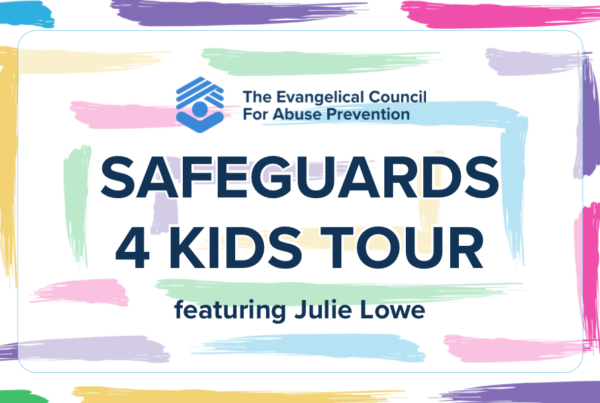This post originally appeared on Gospel Centered Family’s Substack.
On Saturday night, November 6, 2011, I went to bed late. I’d stayed up to watch what I thought at the time would be the biggest college football event of the season, an epic matchup between number-one-ranked Louisiana State University and number-two Alabama. The match between the two powerhouses was a defensive slog that ended in a 9–6 overtime victory for LSU. However, in the days that followed, the so-called “Game of the Century”—and every other national college football storyline—was muted by a tragic story.
By the following Wednesday evening, the career of one of the winningest coaches in college football history, Penn State’s Joe Paterno, was brought to an end because of a sin of omission. He was fired for his silence.
In 2002, Mike McQueary, a graduate assistant, observed one of Penn State’s assistant coaches, defensive coordinator Jerry Sandusky, forcing a young boy into a sexual act in the showers of the school’s football locker room. McQueary reported the incident to Paterno, who passed at least some of the details along to two administrators, the school’s athletic director and a vice president. No one reported the incident to the police. Sandusky, at the time, ran a non-profit organization for underprivileged boys. He brought the boys onto the Penn State campus when he was a coach; he continued to do so even after his own retirement from the coaching staff; and he continued to do so after the report reached university officials.
Sandusky’s actions and Penn State’s neglect finally came into public view on that Saturday before Paterno’s firing. Sandusky was arrested and charged with forty felony counts of sexual abuse involving at least eight young boys over the span of fifteen years. The two administrators were also arrested and charged with failure to report the abuse and with perjury. The Pennsylvania grand jury also confirmed that both Paterno and Penn State President Graham Spanier had knowledge of the 2002 report of abuse and never contacted the police. Even though those two men were not under investigation, their firing was inevitable once the facts became known. Both men had credible knowledge that at least one young boy had been sexually abused, and neither did anything effective to stop it.
A Severe Warning for a Severe Problem
On the heels of teaching his disciples that “whoever welcomes one child like this in my name welcomes me” (Matthew 18:5), Jesus gives them the strongest of warnings:
But whoever causes one of these little ones who believe in me to fall away—it would be better for him if a heavy millstone were hung around his neck and he were drowned in the depths of the sea. Woe to the world because of offenses. For offenses will inevitably come, but woe to that person by whom the offense comes. If your hand or your foot causes you to fall away, cut it off and throw it away. It is better for you to enter life maimed or lame than to have two hands or two feet and be thrown into the eternal fire. And if your eye causes you to fall away, gouge it out and throw it away. It is better for you to enter life with one eye than to have two eyes and be thrown into hellfire. (Matt. 18:6–9 CSB)
The picture Jesus paints with his warning is graphic and severe. He tells his disciples that drowning at sea with a heavy grindstone—literally a made-for-a-donkey millstone—fastened around one’s neck is better than the eternal fate in hellfire that awaits those who cause one of the little ones who believe in him to fall away. The warning is also broad. Jesus addresses any person who would cause a little one to “stumble” (NIV), “sin” (ESV), or “fall away” (CSB). He’s strongly cautioning anyone who might cause someone young in their belief to falter and leave the faith behind.
What are the sinful offenses Jesus is confronting? In the immediate context, the Savior’s words are directed to those who have an inflated sense of self-importance (18:1–4). Arrogance can tempt people to disregard kids or lead others to stand between children and Jesus (19:13–15). But in addition to confronting their pride, Jesus also instructs his disciples to deal harshly with their hands, feet, and eyes if these parts of the body become a cause for offense (vv. 8–9). He used the same hyperbolic imagery in his Sermon on the Mount (5:29–30). In that passage, Jesus was confronting anger and sexual lust (5:21–28).
In the strongest of terms, Jesus warns against the pride, lust, and anger that is at work in the hearts of those who sexually molest and physically harm children. He tells his disciples that such sin can damage a child’s faith. The first representation a child has of God is their parents and regular caregivers. So when children see or experience abuse at the hands of the people who should be the most nurturing, it can impede their capacity for trust. This reality should sober us and encourage us to be vigilant about protecting kids.
Coming to Terms with Our Own Corruptibility
It’s hard to describe the ripple effect that the Penn State scandal had on college football. Joe Paterno’s program was one of the most respected in the country. But the Sandusky scandal exposed the hard truth that depravity and sin reach even to places that look squeaky clean. As Michael Weinreb, a sports reporter and Penn State alumnus who grew up near the university, wrote for the sports blog Grantland, “We’ve come to terms with the corruptibility of the human soul in State College, and we’ve swept away the naïve notion that this place where we lived so quietly was different from the rest of America.”
The sort of offenses that cause little ones to stumble are inevitable in a fallen world. Jesus knew this, and he pronounced a woe upon the world because of such offenses (18:7). But don’t let the fact that Jesus says, “Woe to the world” confuse you. Jesus didn’t think that only those outside the faith would be stumbling blocks for children. In verses 8–9, Jesus says, “If your hand or your foot causes you to sin.” As D. A. Carson observes, “Jesus now abandons denunciation of the world. . . and tells his disciples they may prove to be not only victims but aggressors.” Jesus knew that the sins that prove to be stumbling blocks to little ones are not merely out there in the world, but we find them in here, in the church as well.
In recent years, social-media feeds and newspaper headlines have been filled with stories of spiritual leaders—priests, pastors, youth pastors, and volunteers—who are accused of having sent sexually explicit text messages to youth, molesting children, and even raping minors in their care. The trouble isn’t limited to one denominational group or one region of the country. Abuse of positions of power to take advantage of children is a problem that affects Catholics and Protestants, mainline churches and evangelicals, from the coast of Florida to the Puget Sound.
Some will suggest that the news stories are simply schemes to slander Christians’ reputations, but given Christ’s warnings in Matthew 18:6–9, we shouldn’t dismiss them so quickly. While it wouldn’t be appropriate for us to join an ungodly culture and “pile on” fellow believers, I am prayerful that the onslaught of reports will wake up church leaders and lead them to take policy violations and reports of sexual misconduct seriously. It’s important that we come to terms with our own corruptibility. It’s important that we see that abuses not only happen in the locker rooms of secular universities but that they may also be happening in our own ministries, at the hands of people we trust.
How Can We Miss Something So Monstrous?
It’s hard to believe that the Penn State administration or a group of God-loving pastors at a local church could allow abuse to continue undetected under its collective nose. But it’s easier to fall asleep at the wheel than you might think. I can’t speak to the motives at play in every situation, but I can speak to two everyday temptations that can keep Christian leaders from responding to suspected or reported abuse appropriately.
First, we make false assumptions about what a sexual predator is like. Penn State’s Jerry Sandusky was one of those people folks didn’t see coming. In 1977, Sandusky had started a recreational program for troubled boys. Over time, that program had turned into a respected statewide charity. Sandusky would host neighborhood softball games, and he was known for being a cut-up who would orchestrate regular water balloon fights with the kids in his care. He was hiding in plain sight—the last person people would have pegged as a sexual predator. But, as Deepak Reju observes, Sandusky’s life lines up with one of the typical profiles:
He’s not disheveled and disliked. He is someone who is respected and highly revered in his community. He’s not someone who is poor and socially isolated. He is someone who has influence and money. He is not someone who abducted a child and forced him to do lewd things. He is someone who regularly spent time with troubled children and lavished gifts and special treatment on them. He is not someone suspected of being abusive to young children. He is someone who was thought to be doing great good for kids through his charity work and adoption of six children.
Sandusky wasn’t a power predator, the kind that takes a child by sheer force—like a bear stealing food from a campsite. He was a persuasion predator. Like a circling shark, this type of abuser uses personality, charm, and influence to convince others that he is trustworthy, only to strike when the moment is right.
Child molesters are seductive. They typically demonstrate strong interpersonal skills with children, and they will cultivate a relationship with them over a long period of time, often grooming a child with attention and gifts. Sandusky would take children to football games and invite them for sleepovers in his home. Persuasion predators like him work hard to be liked and respected. They’re counting on making the sort of impression that will make any suspicions about their true behavior seem unbelievable.
If Sandusky had looked disheveled, been economically poor, or had known psychiatric problems, Mike McQueary and the Penn State officials probably wouldn’t have thought twice before alerting the authorities. But when faced with suspicion about someone they respected—someone they liked, one of their own—they gave a serial abuser the benefit of the doubt.
Are we any different? The truth is, many Christians default to the most innocent explanation. After all, in most situations, assuming the best is a polite way of maintaining civility and friendship. Moreover, when someone reports abuse about someone we know, love, and respect, we’ll typically bristle, wanting to deny it and defend the accused. This is why it’s essential that children’s ministries have universally applied protocols for protection and reporting. At critical moments, we need policies and procedures that will guard us against the danger of our own false assumptions.
Second, we fail to see the way that our role influences the way we interpret each situation. As Christians, we believe that God often assigns people with varying gifts and complementary roles so they can work together to address complex tasks. In the care of a local church, God assigned differing roles to pastors and deacons (1 Tim. 3:1–13). He’s assigned differing gifts and roles to each of the church’s members “for building up the body of Christ, until we all attain to the unity of the faith and of the knowledge of the Son of God” (Eph. 4:11–13; cf. Rom 12:3–8). When it comes to addressing severe sin, God has assigned church leadership and the governing authorities differing but complementary roles as well (Matt. 18:15–20; Rom. 13:1–7).
Our differing gifts and roles influence the way we assess and respond to severe sin. Brad Hambrick, a pastor and biblical counselor, describes this phenomenon with what he calls a “parable of blades.” He writes,
When you hand a surgeon a blade, they think “scalpel.” When you hand a fisherman a blade, they think “filet.” When you hand a chef a blade, they think “julienne.” While the shape of the knife should make it obvious what it is for, you get the point—the role of a person impacts how he or she interprets a situation.
As Christian leaders, we have a redemptive mission. We want to see new spiritual life flourish as we proclaim Christ’s message of grace, reconciliation, and forgiveness. When we hear the word “abuse,” we tend to think of it as a strong moral category rather than as a legal category. We use phrases like “severe sin,” not “crime.” If we’re honest, policies and legal requirements put us off. Such strictures aren’t life-giving, because they have a restrictive, not a restorative, purpose. When ministers think about how to address severe sin, it’s typical for us to turn to biblical passages on church discipline like Matthew 18:15–20. This passage, after all, follows closely after the Matthew 18:6–9 warning I unpacked at the beginning of this chapter. The goal of such passages is to confront sin, call for repentance, and restore the sinner to fellowship (Matt. 18:15; cf. 2 Cor. 2:5–10; Gal. 6:1; James 5:19–20).
But if a call to repentance—not a call to Child Protective Services—is our first impulse in the case of abuse, our perspective has become myopic. Our view has been shaped by our redemptive ministry role, and we’ve failed to take into account the responsibility God also has given to the government. Policies, procedures, and laws are necessary. God has given them to us for the purpose of exposing sin and restraining evil (“[the ruler] does not bear the sword in vain,” Rom. 7; 13:4). We can’t ignore them. We must remember that reporting abuse and neglect is mandated when it is against a minor. Neither fear of making a false accusation nor an arrogant thought that the church can do a better job investigating the incident than the authorities should lead us to disobey the law and thus endanger the children in our care. As R. Albert Mohler Jr. wrote immediately following the Penn State arrests, “Waiting for further information allows a predator to continue and puts children at risk.”
What happened at Penn State is a terrible tragedy, but even if you’ve taken steps to question your own assumptions about both child predators and the governing authorities, what is to keep abuse from happening in your ministry?
To welcome kids into gospel-seasoned environments, we need more than a warm welcome; we also need vigilance. We must be vigilant about rooting out false assumptions, properly vetting volunteers, and implementing our protection plans. We don’t do this in a legalistic spirit, thinking that policies will bring life.
No, our vigilance is rooted in humility and self-awareness. Jesus’s strong warning teaches us to beware of the corruption of this fallen world but also to beware of the corruption of our own fallen hearts. The last thing we want is to allow unchecked sin to become a gospel-preventing stumbling block for the next generation. We’re vigilant because in rooting out stumbling blocks, we’re cultivating the kind of children’s ministry environments where seeds of faith can take root and grow.





